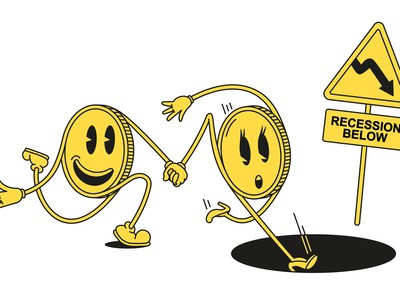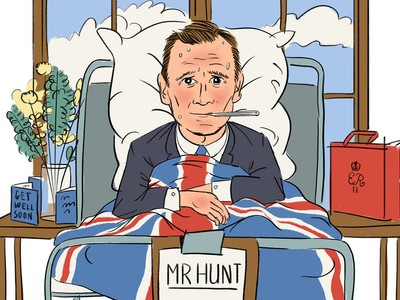Indeed, so far as economic forecasting is concerned, you might consider it more an art than science.
True, there is a positive cornucopia of data for economists to sift through in order to come up with reasonable interpretations of what the future might have in store, but as I have said many times before, forecasting is a mug's game, whether it be for the direction of markets, currencies or economies.
That said, we are fast approaching a new year and it behoves me to at least attempt to identify what are likely to be the main themes that will determine how economies behave and thus what is likely to happen to markets. There will always be the unexpected, of course, though sometimes these events are signalled in advance – like the financial crisis of 2008. It’s just that we don’t always read the runes as well as we might. Two themes do stand out, though, as likely to influence outcomes as the year progresses - politics and debt.
So far as the domestic scene is concerned, we are on the brink of learning what the political shape of our country is likely to be for the foreseeable future. Far be it for me to second guess the outcome of a General Election that will have taken place by the time you read this, but the make up of the House of Commons will have a clear impact
on likely economic performance in the fairly immediate future. A Corbyn win is likely to see sterling dumped in foreign exchange markets and those industries set for re- nationalisation suffering big time as investors take fright.
Boris back in No 10 is likely to be more of a calming influence in the short term, but much will depend on the nature of the deal he secures with the European Union as the year progresses. Another hung Parliament just adds to the uncertainty, with any deals done behind closed doors likely to be controversial and probably subject to revision. If there is any certainty it must be that volatility could be even more of an issue in 2020 than it has been in the past. Not that this is necessarily a bad thing as it throws up opportunities. It may not feel too comfortable, though.
If there is any certainty it must be that volatility could be even more of an issue in 2020 than it has been in the past.
On the global scene we mustn’t forget that 2020 is a Presidential election year in the US – always assuming Donald Trump survives the impeachment hearings. Just as Brexit has divided our nation like never before, so the Trump presidency has split America down the middle. Of course, the election itself is not due to take place until late in the year, but as the fateful day approaches, so speculation on the likely result will increase. Markets over there have done well under Trump and the economy has been surprisingly buoyant. It remains to be seen if these conditions would survive a change at the top – or even the maintenance of the status quo.
As for debt, while there are few signs of cracks appearing in the system so far, the fact remains that the level of borrowing around the world is causing some economic commentators to warn of an impending crisis. Part of their concern lies around the central bank’s inability to bail out failing economies, given the amount of monetary easing they have dished out to support growth in the wake of the financial crisis. Important central banks, like the Fed, the ECB and our own Bank of England have turned the cash taps on again to head o a slowdown. This may continue – but for how long?
These twin threats to our wellbeing may in the end prove to be nothing more than passing clouds in an otherwise blue-sky economic scenario. There were plenty of nay-sayers following the retrenchment in markets that took place at the end of 2018, but it all turned out to be fear-mongering rather than accurate forecasting of approaching Armageddon. And there’s the rub. Economic forecasters are capable of determining where the threats and opportunities might lie, but have no more idea than any of us as to what will actually happen. It doesn’t stop them nailing their colours to a mast, though.
Might either of these potential threats drive the global economic galleon onto the rocks? I doubt it, but that’s not to say we might experience some choppy seas as political landscapes are redrawn or debt threatens to drown us all. It’s up to all of us to decide whether we can live with the uncertainties that remain a part of the investment scene. Don’t forget it was ever thus. If uncertainty did not exist, the opportunity to prosper from astute investing would not either. My money is on a global economic slowdown to continue in 2020, but for a recession to be avoided. At least I know it’s a pure guess.



